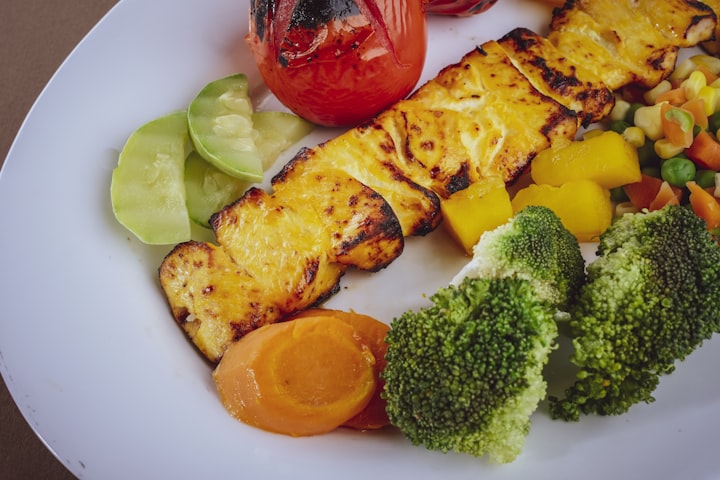
The term "vegan" was coined by a small group of vegetarians in 1944 who split from the Leicester Vegetarian Society in England and founded the Vegan Society. They discard dairy products, eggs, and other animal products and, like meat-eaters, discard meat.
Veganism is the practice of removing animal products from the diet and the corresponding philosophy of rejecting the status of animal value. It is defined as a way of life that seeks to eliminate all forms of animal cruelty and cruelty, be it for food, clothing, or other purposes. Healthy vegetables, also known as vegetarians, avoid meat, eggs, dairy products, and other animal products.
Vegetable diet planning is considered appropriate by the American Academy of Nutrition and Dietetics in all walks of life [f] of the Australian National Health and Medical Research Council [24] British Dietetic Association [25] Dietitians of Canada [26] and the New Department of Health Zealand. Vegan food is good for us, good for animals, and good for the planet in addition to the health benefits and environmental impacts.
One of the things that many people who think about vegan diets wonder about is the effect of a healthy vegetarian diet. You’ve probably heard the general recommendations for “eat colors” or “eat a rainbow,” which means you should add lots of colorful food to your diet.
It is a common misconception that people who eat plant-based foods do not eat animal products. Although there is room for food in animal products, a well-balanced system relies on healthy foods of vegetables such as vegetables, fruits, whole grains, beans, and legumes, while reducing the consumption of animal foods such as meat and dairy products.
Vegan diets have long existed, but very little scientific research has had their long-term effects. Dietitian Alexandra Caspero, RD, says it finds different reasons for its customers than those who prefer plant-based foods and those who prefer vegan foods.
Packed with sugary snacks and processed foods, even if they are vegan, you may have health problems similar to eating meat. French fries, vegan foods, vegan ice cream and cakes, and the inclusion of innocent vegetable meat are all higher in fat and processed than their non-vegan counterparts.
Read labels to verify ingredients and nutrient content, and then try to supplement your nutritious vegetarian diet. Vegetable foods to avoid animal products should not be limited to vegetables and tofu.
You can choose from a growing range of food preparation products, including vegan meat, condensed vegetable milk, vegan cheese, and desserts. However, these products are often contaminated with additives, oils, and artificial ingredients. SUMMARY Vegan means eating a variety of foods and replacing meat and dairy products with other plant-based alternatives that provide a variety of foods.
Vegetarian diets come in many forms and mean different things to different people. While vegetables in many ways eliminate animal products and animal products are used by various people and organizations, those who point to the practice of veganism use a very limited philosophy of animal products which means another concern.
Vegetable foods include animal products such as eggs, dairy products, and honey, but do not include animal slaughter or eating animal meat. According to VEGSCO, a vegetarian diet focuses on vegetables, seeds, legumes, fruits, nuts, and grains. People who only eat plant-based foods need to know how to get certain nutrients, such as iron, calcium, and vitamin B 12, from omnivorous foods.
Vegan diets do not include foods that contain animal products. Those who follow a vegan diet avoid all animal products, including meat, milk, and eggs. Instead, a vegan diet tends to include more fruits, vegetables, beans, nuts, and seeds.
Iron-rich plant foods include kidney beans, black beans, beans, spinach, dried, cashew nuts, oatmeal, cabbage, and tomatoes. People who eat plant-based foods with little or no animal products have low iron stocks. Vegetables mean to increase vegetable intake, reduce the intake of animal products or eliminate certain types of animal products from food.
The current question is whether a vegan diet can provide enough vitamin B-12 that people need to produce red blood cells and maintain nerve function in small amounts (1 to 3 micrograms per day). The popular vegan sources of B 12 are certain fortified foods from animal products such as healthy yeast, cereals, soy milk, and vitamin supplements.
Despite the recent emphasis on modern vegetable and vegetable products, vegetarian and meat dishes are not a modern phenomenon, let alone Western. As I mentioned at the beginning of this article, some people eat vegan foods and vegetables, while others are told that they can't go to the gym, are 24/7 hungry, or feel bad. Vegetarians vary widely around the world, and in modern times (after 1847) vegetarian diets have a rich and varied history.
You have decided to discard animal products in your diet but are not sure where to start - whether you are a vegetarian or vegan - and try to stimulate your process and look at other vegetarian recipes. They feel ready to eat plant-based foods, but they are not sure how to prepare vegetables without boredom.
In other words, switching to vegan means learning how to prepare a wide range of food recipes, buy different foods, and navigate social situations in new ways.
About the Creator
Ramesh KC
Hey, there it's me ramesh!





Comments
There are no comments for this story
Be the first to respond and start the conversation.